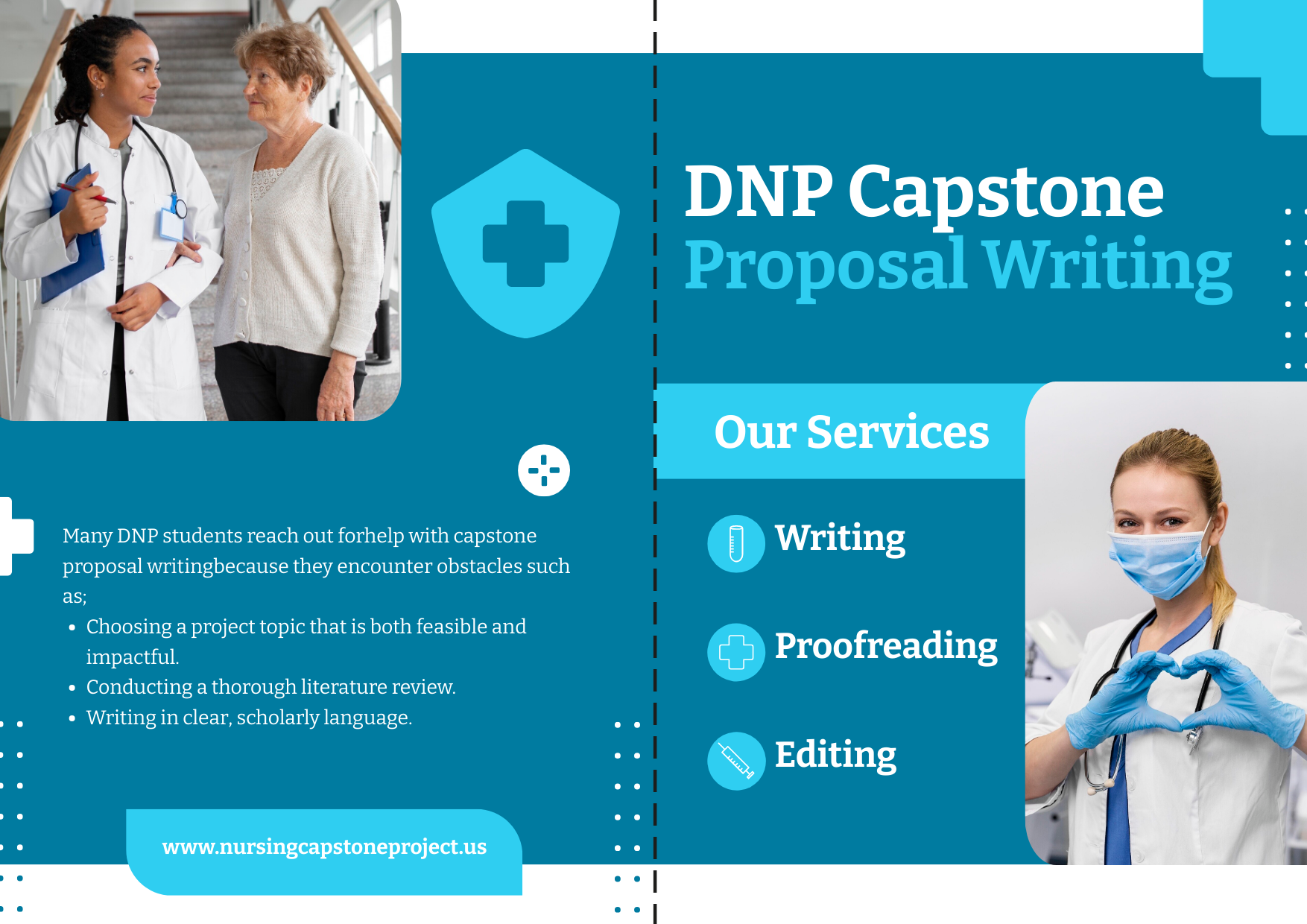If you’re looking for help with DNP capstone proposal writing, this guide will walk you through the process, highlight common challenges, and share practical tips to set you up for success.
Common Challenges Students Face
Many DNP students reach out for help with capstone proposal writing because they encounter obstacles such as:
-
Choosing a project topic that is both feasible and impactful.
-
Conducting a thorough literature review.
-
Writing in clear, scholarly language.
-
Navigating APA formatting and institutional requirements.
-
Balancing proposal writing with work and family responsibilities.
Tips for Writing a Strong Proposal
Here are some practical steps to make the process easier:
-
Start early – Give yourself plenty of time for revisions.
-
Stay focused – Narrow your topic so it’s manageable within the program timeline.
-
Use evidence – Support every claim with credible sources.
-
Be clear and concise – Avoid vague language and overly broad goals.
-
Get feedback – Regularly consult your faculty advisor or peers.
-
Stay organized – Use tools like Zotero, EndNote, or citation managers to handle references.
Professional DNP Proposal Help
Sometimes, students benefit from expert guidance to make their proposals stronger and more polished. Professional DNP proposal writing support can help with:
-
Topic selection and refinement.
-
Literature review organization.
-
Framework and methodology alignment.
-
Editing for clarity, structure, and APA formatting.
Getting help doesn’t mean doing less work—it means working smarter and ensuring your proposal meets the highest academic standards.
How to Write a DNP Capstone Proposal: Expert Guide for Nursing Students
Writing a Doctor of Nursing Practice (DNP) Capstone Proposal is one of the most important steps in your doctoral journey. This proposal serves as the roadmap for your final DNP project and demonstrates your ability to apply research, leadership, and evidence-based practice to real-world healthcare challenges.
If you’re feeling overwhelmed, you’re not alone. Many nursing students search for DNP capstone proposal help because this document requires advanced writing, critical thinking, and academic precision. This guide will walk you through the essentials of how to write a DNP proposal and provide tips to make your work stand out.
What is a DNP Capstone Proposal?
A DNP capstone proposal is a formal plan for your final scholarly project. It outlines the healthcare problem you want to address, the evidence supporting your project, and the strategies you will use to implement and evaluate your solution.
In short, your proposal convinces faculty reviewers that your project is feasible, evidence-based, and aligned with DNP program outcomes and essentials.
Key Sections of a Strong DNP Proposal
When writing your DNP project proposal, make sure you include these essential components:
1. Introduction & Problem Statement
-
Identify the clinical or organizational issue.
-
Explain why it is relevant to nursing practice.
-
Use recent data, research, and statistics to highlight the problem.
2. Literature Review
-
Provide a synthesis of scholarly evidence.
-
Show research gaps that your project will fill.
-
Demonstrate alignment with best practices.
3. Purpose & Project Objectives
-
Define the purpose of your project clearly.
-
Use SMART objectives (Specific, Measurable, Achievable, Relevant, Time-bound).
4. Theoretical or Conceptual Framework
-
Link your project to a nursing theory or model.
-
Explain how the framework will guide your project.
5. Project Design & Methods
-
Describe your project type (quality improvement, policy initiative, educational intervention, etc.).
-
Include setting, participants, tools, and methods.
-
Explain how you will collect and analyze data.
6. Timeline & Resources
-
Provide a realistic project timeline.
-
Identify materials, technology, and staff support needed.
7. Expected Outcomes & Implications
-
Highlight measurable outcomes.
-
Discuss how your project contributes to evidence-based nursing practice and improves patient care.
Expert Tips for Writing a DNP Capstone Proposal
-
Start early – give yourself plenty of time to refine your work.
-
Follow your university’s template – schools often have strict formatting requirements.
-
Use credible, peer-reviewed sources – strengthen your literature review with up-to-date evidence.
-
Write with clarity – avoid unnecessary jargon, be concise, and stay focused.
-
Seek feedback – mentors, advisors, or professional editors can help polish your draft.
Common Mistakes to Avoid
When drafting your DNP proposal, steer clear of these pitfalls:
-
Choosing a topic that is too vague, broad, or impractical.
-
Failing to link your project to DNP essentials.
-
Ignoring ethical considerations and IRB approval.
-
Overloading your paper with summaries instead of critical analysis.
Why Get Help with DNP Capstone Proposal Writing?
Writing a high-quality proposal requires more than clinical expertise—it also demands advanced academic writing skills. Many students benefit from professional DNP capstone proposal help, including:
-
Topic selection and refinement.
-
Literature review development.
-
Proposal organization and formatting.
-
Editing for clarity, grammar, and APA style.
Getting expert support can save time, reduce stress, and ensure your proposal meets faculty expectations.
Final Thoughts
Your DNP Capstone Proposal is the foundation of your doctoral project and a reflection of your professional expertise. By following a structured approach, grounding your work in evidence, and avoiding common mistakes, you can craft a strong proposal that sets you up for success.
If you need personalized DNP capstone proposal writing help, don’t hesitate to seek guidance. With the right support, you can move forward confidently and bring meaningful change to nursing practice.



